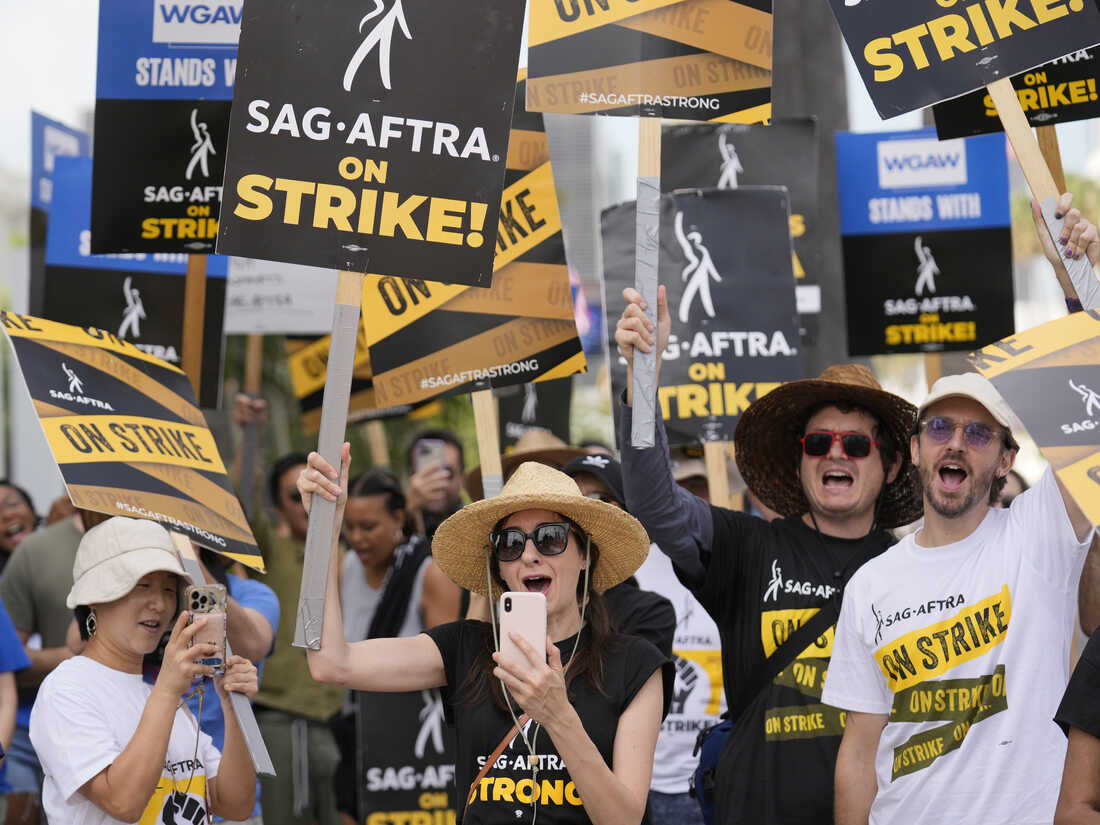Epic Games Sued: Allegations Of Large-Scale Deceptive Practices In Fortnite

Table of Contents
The Core Allegations of Deceptive Practices in Fortnite
The core allegations against Epic Games center around accusations of deceptive and manipulative practices within Fortnite’s in-game economy. Plaintiffs claim that Epic Games knowingly employed tactics designed to exploit players, particularly children and those vulnerable to impulsive spending. Specific claims include:
-
Loot boxes and their odds of success (or lack thereof): The lawsuit argues that the odds of obtaining rare and desirable items from loot boxes are deliberately obscured, creating a system of psychological manipulation that encourages excessive spending. Players are allegedly led to believe they have a higher chance of winning rare items than is actually the case. The lack of transparent probability disclosures is a central point of contention.
-
Misleading descriptions of in-game items: The lawsuit alleges that descriptions of in-game cosmetics and other items are intentionally vague or misleading, exaggerating their value or usefulness to incentivize purchases. Visual representations might not accurately reflect the in-game item's actual appearance or functionality.
-
Aggressive monetization tactics targeting children and vulnerable players: The plaintiffs contend that Fortnite’s monetization system is specifically designed to appeal to and exploit children and other vulnerable players through bright colors, exciting animations, and the use of highly desirable virtual items. The ease of making in-app purchases is also highlighted as a contributing factor.
-
Hidden costs and unexpected charges: The lawsuit further claims that Epic Games uses deceptive pricing strategies, such as hidden costs and unexpected charges, which lead players to unknowingly spend more than they intended. This includes subscriptions, bundles and add-ons that are not clearly presented at the point of purchase.
The plaintiffs, a group of Fortnite players from various regions, are seeking compensation for their financial losses and are demanding greater transparency in Fortnite's monetization system.
The Impact on Players and the Gaming Industry
The financial consequences for players allegedly deceived by Epic Games’ practices could be substantial. Many players report spending hundreds, even thousands, of dollars on loot boxes and in-game purchases without obtaining the desired items. Beyond individual financial losses, this lawsuit has major implications for the entire gaming industry. It sets a precedent that could impact how game developers and publishers approach monetization in the future. The ethical implications of using loot boxes and similar systems to generate revenue are being intensely scrutinized.
The sheer scale of player spending in Fortnite, and the overall gaming market, underscores the potential magnitude of this case. Statistics on in-game spending are readily available from various market research firms and highlight the significant revenue generated through these systems. The outcome of this lawsuit could significantly affect the design and implementation of in-game monetization strategies across the industry. Other game developers and publishers are closely monitoring the situation, anticipating potential ripple effects.
Epic Games' Response and Legal Strategy
Epic Games has issued a statement denying all allegations of deceptive practices. They maintain that all in-game purchases are clearly presented and that the odds of obtaining rare items from loot boxes are readily accessible to players. Their defense strategy likely centers around arguing that players knowingly engaged in these purchases and understood the risks involved. However, the lack of clear and upfront information regarding odds and descriptions will be a key challenge in their defense. The legal precedents surrounding loot boxes and in-game purchases are still evolving, making the potential outcomes uncertain.
Potential Outcomes and Future Implications for Fortnite
Several potential outcomes exist for the Epic Games lawsuit. A settlement could result in changes to Fortnite's monetization practices, including increased transparency and potentially even the removal of loot boxes. Alternatively, a court ruling could set a significant legal precedent for the regulation of loot boxes and similar mechanics in video games. Regardless of the outcome, this case could lead to significant changes in the industry. It might prompt stricter regulations or even legislation aimed at protecting players from deceptive in-game purchases. The future of loot boxes and similar systems in gaming will undoubtedly be significantly impacted by the result.
The Future of Fortnite and the Fight Against Deceptive Practices
The allegations against Epic Games highlight the crucial need for ethical game design and transparent monetization practices. This lawsuit underscores the potential for financial exploitation of players, particularly those susceptible to manipulative tactics. The potential consequences for Fortnite and its players are far-reaching, affecting not only the game's future but also the broader gaming ecosystem. This case underscores the need for greater transparency and regulation in the in-game purchasing system. We must advocate for better consumer protection in the gaming market. Follow the developments in the Epic Games lawsuit, stay informed about deceptive practices in Fortnite, and learn more about the legal battle facing Epic Games. This fight for transparency and ethical practices within the gaming industry is crucial for safeguarding players and ensuring fair play for everyone.

Featured Posts
-
 Entendiendo El Esquema Ponzi De Koriun Inversiones Victimas Y Consecuencias
May 17, 2025
Entendiendo El Esquema Ponzi De Koriun Inversiones Victimas Y Consecuencias
May 17, 2025 -
 The Chrisean Rock Interview Angel Reeses Fiery Response To Critics
May 17, 2025
The Chrisean Rock Interview Angel Reeses Fiery Response To Critics
May 17, 2025 -
 Jalen Brunson And Ali Marks Their Love Story And Life Together
May 17, 2025
Jalen Brunson And Ali Marks Their Love Story And Life Together
May 17, 2025 -
 Millions Made From Exec Office365 Hacks Fbi Investigation Reveals
May 17, 2025
Millions Made From Exec Office365 Hacks Fbi Investigation Reveals
May 17, 2025 -
 Actors And Writers Strike The Impact On Hollywood
May 17, 2025
Actors And Writers Strike The Impact On Hollywood
May 17, 2025
